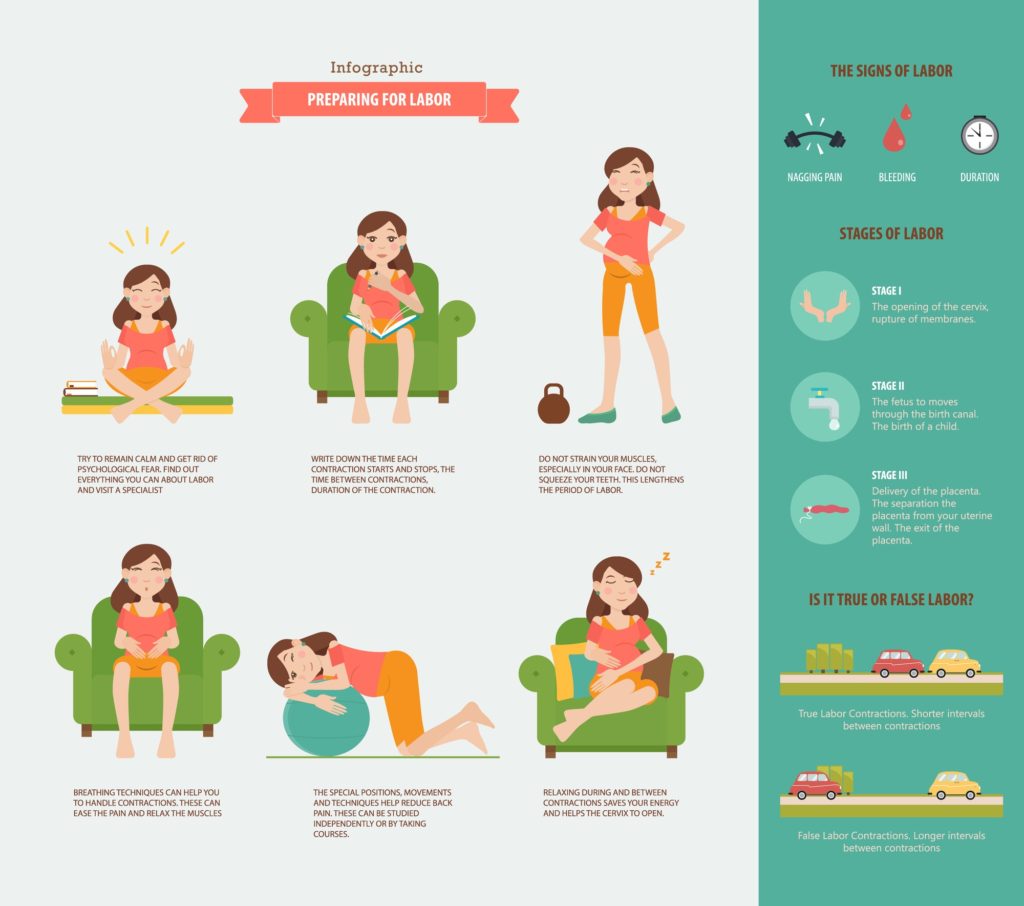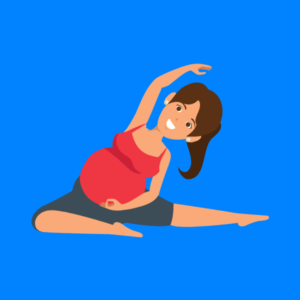Yay! so you are nearly there. The end of the long awaited journey. Most women worry about how they will cope with the pain of labour and birth. You may worry and be anxious too, especially if it is your first baby and you do not know what to expect.
It’s natural to be concerned about how you will cope with labour, but one of the best ways to overcome any anxieties you may have is to find out as much as you can beforehand. Here we explain what happens during labour and tell you about your pain relief options.
The one question you’ll want the answer to is: How do I know when labour is starting?
There’s actually no definite answer, because every labor process is different. At that stage, every little twinge or pain becomes a sign to you and then you become nervous it is about to start.
However there are some common signs to watch out for that can indicate labor is about to start, including contractions and waters breaking:
The start of labor is called the latent phase-This is when your cervix becomes soft and thin as it gets ready to open up for your baby to start coming out
This varies between women as it can take just hours for some and days for others .If you do go to the hospital you will likely be sent home. as your contractions may be irregular.
There are several signs that labor may be starting, including:
- a ‘show’, which happens when the mucus plug from your cervix (the entrance to your womb) dislodges, – it looks like as a pink-brown jelly-like blob or can come out in bits. This on its own doesn’t mean that labor has started though
- pains that feel like strong period pains – these are the start of contractions
- lower back pain-might be a sign that labor would start in few days
- an urge to go to the toilet – this is caused by your baby’s head pressing on your bowel
- waters breaking – could be a gush or tickle it depends how much amniotic fluid surrounding your baby.
- Regular contractions– You’ll be able to tell these are real contractions unlike Braxton Hicks because they hurt and they build up – becoming longer, stronger and more frequent.
What do real labour contractions feel like:
Your early contractions may feel a bit like period pains and, if you’ve had them you might wonder whether they are just more Braxton Hicks contractions.
During a contraction, As labor progresses, the contractions will become more intense, longer, stronger and more frequent. Your womb tightens and then relaxes; for some people this will feel like extreme period pains. At that point, if you place your hand on your abdomen you will feel it getting harder, and when the muscles relax and the pain fades you’ll feel your tummy loosen up.
Most women’s waters break during labor, but sometimes it breaks before labor starts. The waters are from the amniotic fluid in the sac that your baby grows in , and comes out of the vagina when it breaks. Sometimes when you’re in labor, a midwife or doctor may offer to break your waters to speed up the process.
If your waters break naturally, you may feel a slow trickle or a sudden gush of water you can’t control. To prepare for this, when is getting closer to due date, you could keep a sanitary towel (but not a tampon) handy if you’re going out, and put a protective sheet on your bed. Also, when your waters break, the water may have a little blood tint to it.Tell you doctor asap if the waters are coloured/smelly and you are losing blood
Most women go into labor within 24 hours of their waters breaking. You’ll most likely be induced if you don’t because, without amniotic fluid, there’s an increased risk of infection for your baby.
Until your induction, or if you choose to wait for labour to start naturally, tell your midwife immediately if: your baby moves less, there’s any change in the colour or smell of any fluid coming from your vagina.
A point to note, having sex when your waters have broken .might increase the risk of infection.
Tips for helping with labour
- Walk or move about
- Drink fluids
- Have a snack
- Try any relaxation and breathing exercises you’ve been practicing to get through the contractions
- Have your birth partner rub your back
- Take paracetamol according to the instructions on the packet
- Have a warm bath



